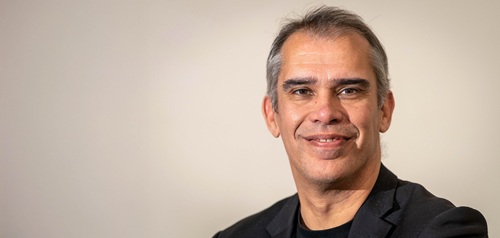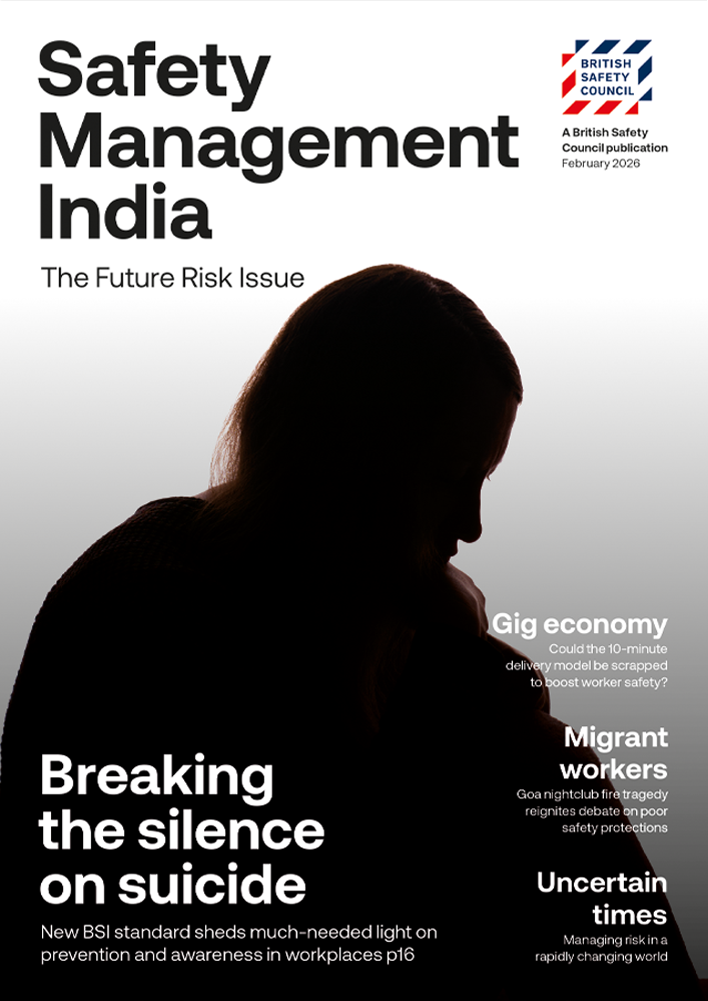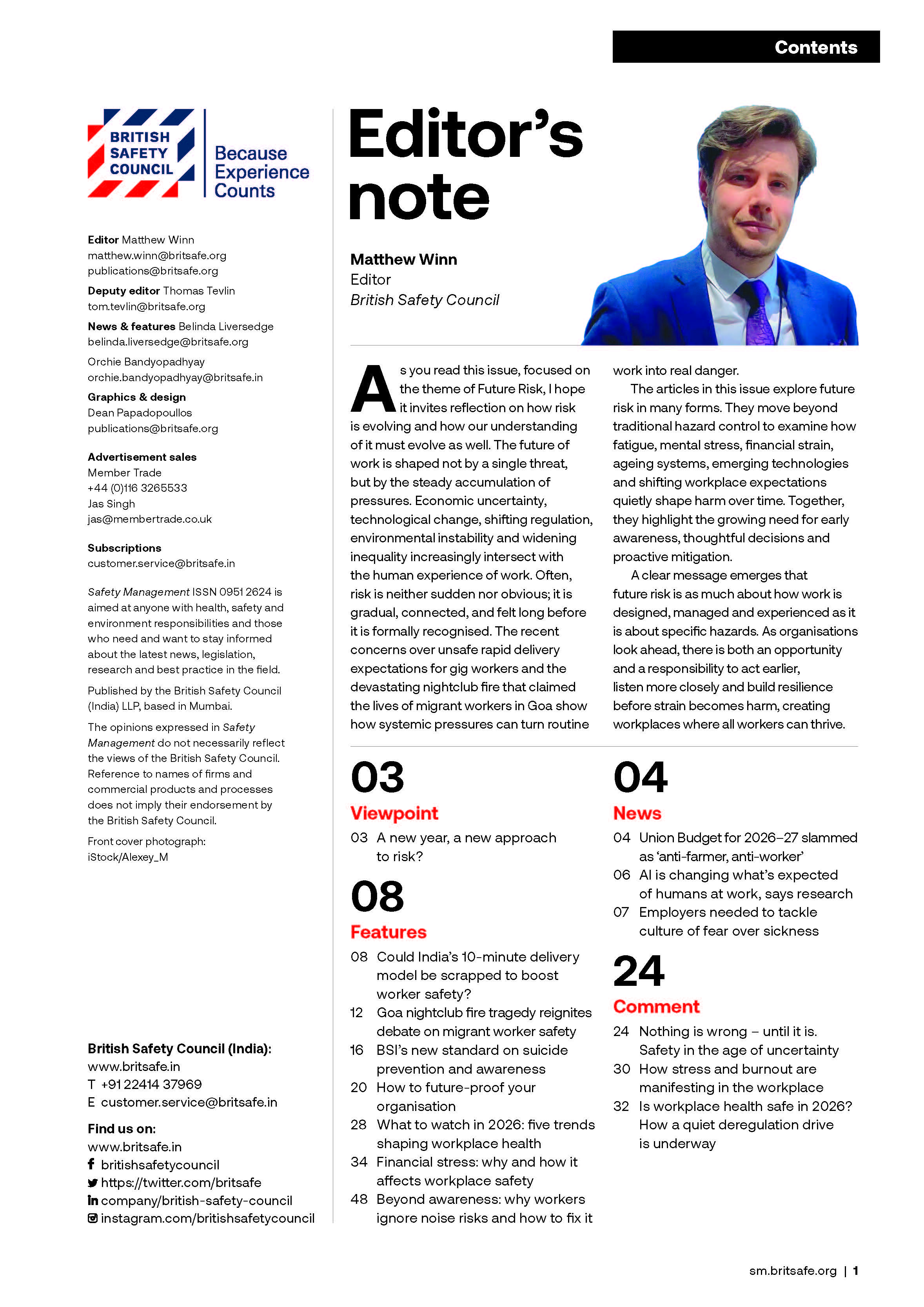I suffered devastating injuries in a totally preventable fall from height at work, and I’m passionate in encouraging all employers to do more to educate workers about the dangers of taking short-cuts with safety.
Opinion
Work at height: never disregard the dangers
My name is Paul Blanchard and one Sunday morning 15 years ago my life changed irrevocably after I fell 12 feet through an opening in the roof of a barn and was left paralysed from the chest down.
I was 54 years’ old at the time of the accident in 2010 and was an experienced construction tradesperson, having spent 40 years in the industry. Although I trained as a bricklayer, over the years I gained experience in various types of building work, including general construction, so had become a general construction tradesperson.
Around six months before the accident, I had carried out a barn conversion for some farmers, creating a residential unit. They were pleased with my work and asked me to return to replace some sheeting on an industrial barn on their farm.
 Paul Blanchard: "The consequences of my accident are a stark reminder that workers need to consider safety at all times."
Paul Blanchard: "The consequences of my accident are a stark reminder that workers need to consider safety at all times."
Although I was busy with other projects, I inspected the roof and agreed to do the work. I decided to make a start the following Sunday, but after I arrived it started raining, and rather than start work in wet conditions, I spent some time chatting to the farmer and decided to go home.
However, about an hour after returning home, it stopped raining, so I decided to return and commence the work. The job involved removing and replacing some leaking sheets from the roof, and I decided I could gain access onto the roof via an adjacent building. I thought it would be fairly safe to stand on and work from the building’s industrial guttering, which was approximately 12 inches wide, as it would mean I could reach the lower-level sheets close to the guttering that I needed to replace.
However, after removing one roof sheet, I slipped on the wet surface, and fell through the opening on the roof, landing on the concrete floor below. Although the distance didn’t seem huge – around 12 feet – it is not an understatement to say the consequences were, and have been, devastating and life-changing.
Although I knew that certain access equipment, like a scaffold and tower boards, were required to ensure the work was totally safe, for some reason I decided to go ahead and work from the building’s guttering.
I now bitterly reject not informing the farmer that he needed to cover the cost of the necessary safe access equipment, and that I would not be starting work until it was in position. I took a short-cut for some reason and I now have to live with the consequences.
I was knocked unconscious, and, upon discovering me lying on the barn’s floor, a woman who lived in a nearby farmhouse called for an ambulance. Upon their arrival, the ambulance crew immediately decided the likely severity of my injuries meant an air ambulance should be called.
I suffered 18 broken ribs, serious head injuries and life-changing spinal injuries. The extent and seriousness of my injuries meant I spent the next seven months in hospital, three of them in an induced coma. I’m paralysed from the chest down and have been a wheelchair user ever since the incident.
In fact, the doctors told my wife my chances of survival were slim and, were I to survive, I quite possibly would have brain damage. Fortunately, I recovered from the physical head injuries and did not suffer lasting or permanent brain problems.
Devastating reality
After I was discharged from hospital, myself and my family then faced the devastating reality of the challenges we would face because I was now wheelchair-bound and paralysed.
My wife became my carer and, as a wheelchair user who has no power of movement below my chest, I face difficult, time-consuming and often unsurmountable challenges in my everyday life. All the small things that I was able to do easily myself have become big challenges that involve getting help from others and often time-consuming planning. For example, family members, such as my grown-up children, have to help my wife out with tending the garden and I have to ask them to do the DIY jobs around the house that I once sailed through, like simple decorating. My wife has been forced to take on responsibility for my care and basic, everyday living and often it feels terribly unfair on her.
 Paul set up his company Life after an Accident and now delivers motivational safety talks and presentations to companies based on his experience.
Paul set up his company Life after an Accident and now delivers motivational safety talks and presentations to companies based on his experience.
Looking back, it seems clear that, even with my 40 years’ experience in the building trade, I took my eye off the ball when starting work on that barn roof. Perhaps it was complacency – the trap of thinking “it will never happen to me” – that led me to work unsafely, but the consequences of my accident are a stark reminder that workers need to consider safety at all times.
After leaving hospital and continuing my rehabilitation, it became clear that returning to any kind of physical work would be impossible. However, at the same time, the financial reality of having no source of income quickly became apparent.
Becoming a motivational speaker
Around a year after coming home, I was asked if I would like to tell my story to a few people at a company’s employee health and safety day. To my surprise, I felt very comfortable doing this and it also felt strangely empowering, because I suddenly felt I could do some good by inspiring others to always look after their health and safety at work.
I created a website for my company, Life After an Accident, and began delivering motivational safety talks and presentations to a range of companies in the construction, energy and industrial sectors.
My talk is an honest and sometimes graphic account of the physical, physiological and financial effects of the accident on myself, my family, friends and workmates; and the emotions are often extremely raw and strong as I cast my mind back to that fateful day and how my life has drastically changed since.
I think my talk is powerful because attendees hear first-hand – and in a very raw way – the human impact of getting health and safety wrong or taking short-cuts. Rather than just a standard briefing or toolbox talk where employees and contractors are given safety instructions, the audience connects with me on an emotional level because they feel empathy with someone who has felt the full effect of an industrial accident.
In short, a true story is very powerful, and I’m very passionate about getting this message across to people. I have been doing these presentations for many years now and I shall continue to do so for as long as I am asked. As well as addressing workers, I’ve spoken at schools, colleges and even young offenders’ institutions, as the safety message can be passed on even before people enter the world of work, or return to it for whatever reason.
However, my story is also uplifting and positive. This is because I have come to terms with my situation, and I’ve accepted that my life has changed. I faced hurdles that seemed impossible, but I somehow found the determination to adapt to a new direction in life. In large part, this has come from carrying out my motivational talks, because I’ve found real purpose in trying to inspire others. I’ve become passionate about helping people to avoid the life-changing momentary lapse of life concentration that I had.
And with my family’s help and support, I lead a fulfilling life.
 Paul: "I’ve found purpose in trying to inspire others."
Paul: "I’ve found purpose in trying to inspire others."
Safety ambassador
Several years ago, I was invited to become an ambassador for the No Falls Foundation, a UK-based charity dedicated to preventing falls from height at work and helping people affected by the life-changing consequences of a fall in the workplace. Alongside two other ambassadors, Jason Anker MBE and Dylan Skelhorn, who also suffered serious injuries in falls at work, I promote the Foundation’s aims and objectives at my presentations and highlight the great work they do in raising public and employer awareness about the risks of working at height and the importance of always taking suitable precautions.
I’ve known Jason Anker for several years and, like me, he was left wheelchair-bound following an avoidable accident when he fell from an unsafe ladder. Jason is also a safety motivational speaker and established Proud2bSafe (P2BS), a company with a variety of speakers who each deliver their own personal motivational safety talk, based on their own stories of how workplace accidents and ill health have affected them, their families, friends and colleagues. I am a member of the P2BS team and specialise in talking about the dangers of work at height.
In 2015, I was very proud to receive an Archangel Award as part of the Royal Society for the Prevention of Accidents’ (RoSPA’s) Guardian Angel Awards scheme. The Guardian Angel Awards recognise individuals for their outstanding commitment to health and safety, both in and out of the workplace, and, on occasions, RoSPA presents a small number of Archangel Awards each year to honour stand-out Guardian Angel nominees.
Further steps
Although I think the safety culture among UK employers and workers has been steadily improving in recent years, I believe the pace of change is too slow, and there are still too many fatalities and serious injuries due to falls from height.
The Health and Safety Executive rightly continues to vigorously enforce the law around safe work at height, including through site inspections and prosecutions, though of course its efforts are constrained by the financial and staffing resources available to it. However, hopefully recent and ongoing increases in the level of fines and cases of imprisonment for people like contractors who have been found negligent in preventing falls are encouraging more businesses to provide the correct equipment and training to ensure safe working procedures.
Ultimately however, there needs to be more effective training to warn workers of the dangers of unsafe work at height. This training needs to address the mindset of the workers; making it clear they are the ones who will suffer the consequences if they take short-cuts or do not speak up if the employer’s safety equipment or plans for the work at height are unsafe.
The truth is all accidents are avoidable, and managers need to ensure workers develop a mindset of always considering the potential hazards around them.
Ultimately, workers need to think about the impact that taking short cuts or failing to speak up about unsafe conditions could have on themselves and their family. A life-changing accident not only affects the injured person – partners, parents, siblings, children, grandchildren, friends and colleagues are also affected in ways that are difficult, hurtful and life-long. So, I say to anyone at work – always take care and come home to your family.
Paul Blanchard is a motivational and behavioural safety speaker at Life After an Accident
For more information and to contact Paul Blanchard, see:
lifeafteranaccident.co.uk
linkedin.com/in/paul-blanchard-a7847074
E: [email protected]
T: +44 (0)7947 454922
OPINION





